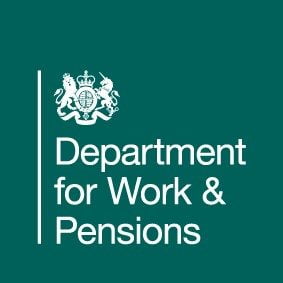

Features
What last week’s rejection of Law Commission recommendation on ESG for pensions means
Following the Government’s decision last week to reject the Law Commission’s recommendation that pension trustees should take account ESG issues, we spoke to Fergus Moffatt, Programme Director and Head of Public Policy of UKSIF (UK Sustainable Investment and Finance Association) about that decision, the reasons behind it and its implications.
The Law Commission Report’s conclusion was that: “[pension] trustees should take into account factors which are financially material to the performance of an investment. Where trustees think ethical or environmental, social or governance (ESG) issues are financially material they should take them into account.”
What do you think drove the decision of the government to reject the Law Commission’s recommendations?
The drivers for the Government’s rejection of the LC’s recommendations are unclear. DWP’s response says “many” responses called for regulatory change, but then cite a lack of consensus on how to amend the regulations and responses achieving slightly different outcomes as reasons to make no changes.
It is also unclear, if the desired outcome was consensus, what steps the Government took to try and achieve it in the six months since the consultation ended.
Was there anything unreasonable within the recommendations?
We don’t think so. In terms of stewardship, since the Kay Review, the concept has gained momentum as a way to encourage long-term value creation. The Law Commission was right to recommend a review on whether trustees should be required to state their policy on stewardship.
We felt the consultation question on this – which proposed requiring trustees to sign the Stewardship Code or explain why they had not- slightly missed the point. Many pension funds have stewardship activities carried out on their behalf by managers and so it seemed to us that having the trustees state their approach to stewardship in the SIP would be a far more effective way of achieving the same goal.
In terms of the financially material language we think the consultation reflected the direction of the LC findings and was reasonable.
Had the Government accepted the recommendations, what changes would we have seen in the pensions market?
A change to the investment regulations as recommended by the Law Commission would have meant a clear distinction in law over what constitutes financially-material factors – which trustees would have been required to consider – and non-financial factors.
The former would have sent a very clear signal to trustees, their advisors and consultants both that the idea of solely maximising returns at the expense of all other considerations is simply a misconception and that they needed to be aware of a wide range of evolving and emerging issues which might be “financially material”.
What is the immediate impact of the government’s refusal to accept the recommendations?
One immediate effect is that a key driver to better trusteeship won’t crystallise. Many trustees are making progress in ESG but this would have been a really useful accelerator. Instead, the Government has stated that, rather than amend the investment regulations, they will work with The Pensions Regulator to create guidance on trustees’ responsibilities.
This process has already begun: for the past few months TPR has been working on a revised DC code which will be issued alongside guidance that incorporate the findings of the Law Commission and the Trustee Toolkit has already been updated to reflect this. Included in its response the Government announced a new consultation to examine how pension schemes make information on investments and stewardship available to beneficiaries so we hope to see progress here.
And in the long-term?
We think the sector is moving in the right direction but a chance of faster progress has been missed. The Law Commission report provided clarity over the role and responsibilities of trustees with regard to their fiduciary duty. The report represented a view of the current legal environment in which trustees operate- welcome news for engaged pension schemes.
But even since the publication of the report we have seen trustees and schemes refer to their ‘duty to maximise returns’ and it is clear the reach of the report has been limited. Our view is that by including the Law Commission’s recommendations in the investment regulations the Government had the chance to ensure laggards in the sector were brought up to the same level as other, more responsible investors. There is no doubt we are moving in the right direction, but with this approach it will take longer.
Does the discussion go on or is the issue closed for now?
We will ask our members what they think in order to decide what to do, but in parallel with that we will continue to work closely with DWP and The Pensions Regulator to ensure guidance that makes clear that financially-material factors including ESG should be taken into account by trustees and that non-financial factors may be taken into account.


 Environment12 months ago
Environment12 months agoAre Polymer Banknotes: an Eco-Friendly Trend or a Groundswell?

 Features11 months ago
Features11 months agoEco-Friendly Cryptocurrencies: Sustainable Investment Choices

 Features12 months ago
Features12 months agoEco-Friendly Crypto Traders Must Find the Right Exchange

 Energy11 months ago
Energy11 months agoThe Growing Role of Solar Panels in Ireland’s Energy Future




























